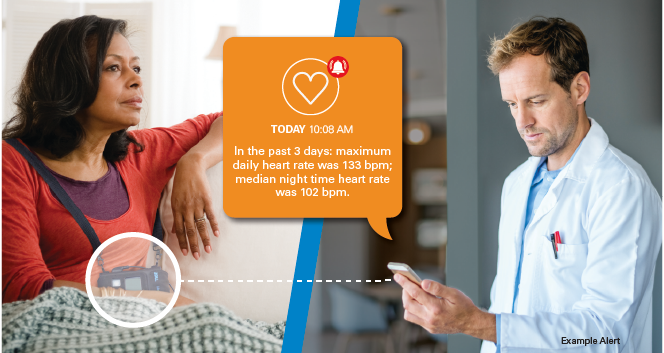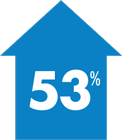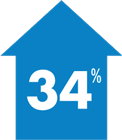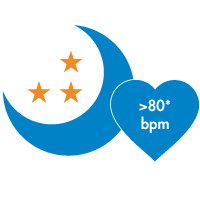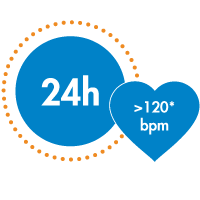Heart Rate Control Alert
LifeVest can notify you of a patient’s worsening condition so you can take action
Elevated Heart Rate is Associated With Poor Outcomes in Post-MI and HF Patients
- In post-MI patients, elevated HR is associated with poor outcomes, such as non-fatal MI or non-fatal stroke.1
- In CHF patients, risk of CV death or HF readmission increases by 3% with every elevated beat.2
Low-EF Patients With Elevated HR (70 bpm or Greater) Have Increased Risk for CV Death and HF Readmission3 |
Increase in HF hospitalization3
(p<0.001)
HR ≥70 bpm
Increase in CV death3
(p=0.0041)
HR ≥70 bpm
Early Reduction of HR is Associated With Improved Outcomes
- Early reduction of HR at 1 month (9.5-15.3 bpm) improves long-term survival rate and MI recurrence.4
- Each 10 bpm reduction in HR at 1 month is estimated to reduce relative risk of CV death by 30%.4
Heart Rate Control Alert: Get Insights You Need During Cardiac Recovery
- Heart rate data from LifeVest can help you identify a worsening condition so you can take action.
- Customize settings to be notified of your LifeVest patients' elevated daily or nocturnal heart rate.
Heart Rate Control Alert: How It Works |
Median nocturnal HR for 3 consecutive days*
Maximum daily HR for 3 consecutive days*

